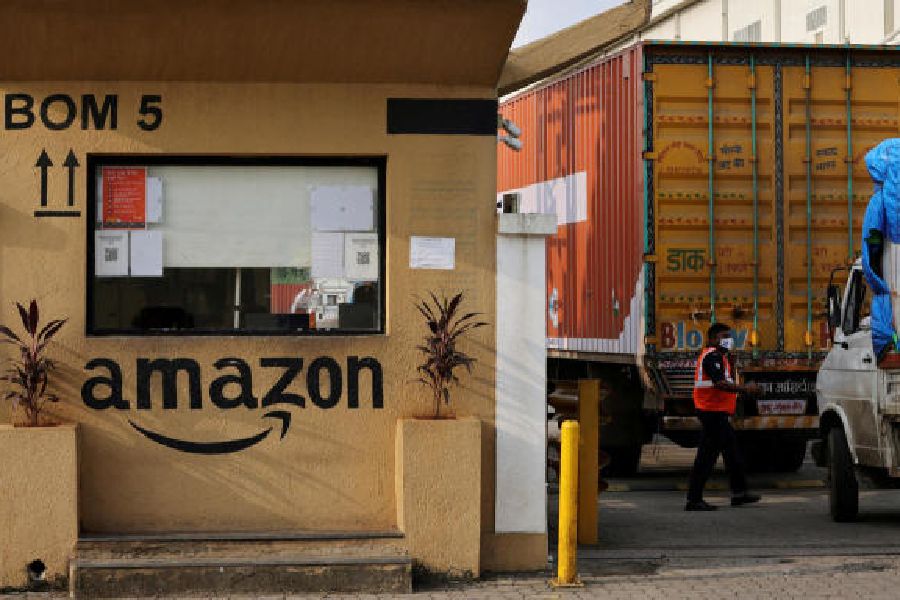Amazon’s entry into India’s diagnostic services business will intensify competition with existing established players, potentially leading to further consolidation in a market dominated by standalone labs. Earning the trust of doctors and patients could be the key to success of the world’s largest e-tailer’s latest venture in India, experts and market participants told The Telegraph.
The market for diagnostic labs is estimated to be in the region of $17-18 billion (₹153,000 crore) according to rating and research firm Crisil and growing by a healthy rate of 9-10 per cent annually.
However, the top 10 players corner only a fraction ($1 billion) of this expanding segment, leaving scope for gradual migration from unorganised standalone units (many of them continue to be unaccredited) to national chains as income levels rise and patients become more conscious about the accuracy of test reports.
Amazon announced their entry into this fragmented but fast consolidating market place in late June in partnership with a health start-up Orange Health Labs, allowing customers in cities across 450 pin codes book over 800 diagnostic tests from the app, get doorstep sample collection under 60 minutes and digital reports in as less as six hours, for routine tests.
Founded by Dhrub Gupta and Tarun Bhambra, Orange is partly funded by Amazon Sambhab Venture Fund, which invests in tech start-ups. The Fund led a $12 million fund raise in December 2024.
“Amazon’s entry could reshape urban healthcare if it executes well,” said Arunkumar Govindarajan, radiologist and executive director, Aarthi Scans and Labs. But can it?
The story so far
India saw the entry of big business houses such as the Tata group and Reliance into the online diagnostic space with the acquisition of 1MG and Netmeds, respectively, when the Covid pandemic was raging. The diagnostic market took off with 20 per cent annual growth with Covid bringing with it many health complications. Five years since then, the online players are yet to make a significant mark in the marketplace, said Crisil’s senior director Anuj Sethi.
“At these prices, it is difficult to make profit,” he said. Neither Reliance nor Tata Digital, which houses Tata 1MG, declined to comment.
However, these companies have increased competitive intensity at the entry level. “While the online players are offering routine diagnostics or the preventive wellness tests, the traditional players are also doing specialised tests required for critical care, as they have spent on creating the infrastructure. The margins are strong in these specialised tests,” Poonam Upadhyay director, Crisil Ratings, said.
Trust issue
“There is a significant amount of trust involved in the healthcare business, and it takes time to grow that trust,” Somnath Chatterjee, joint managing director, Suraksha Clinic and Diagnostics, argued.
According to Upadhyay, doctors still trust the established players when it comes to critical care tests. “Before I put my patient into long term medication or advise surgery, I usually advise them to get tests done from Trivedi & Roy in Calcutta. Not that others are not good, but it’s a matter of reliability and credibility which is earned over many years,” said a Calcutta-based doctor who did not wish to be identified.
“Healthcare isn’t like retail, it fundamentally depends on quality infrastructure, trust, and real-world delivery. Disruption in this space is typically slower and requires a long-term, decade-scale strategy,” said Govindarajan.
According to Chatterjee, there is a difference between delivering groceries and collecting blood samples. “Deep domain knowledge is required. Around 67 per cent of the error in a lab happens at the pre-analytical stage. How the sample is collected and transported becomes very important,” Chatterjee said, adding that Amazon would surely take care of it.
Road ahead
Amazon’s scale, the Prime user base, and proven logistics capabilities give it an edge that could accelerate typical healthcare transformation timelines, Govindarajan said.
Upadhyay pointed out that Amazon joined hands with an established accredited player taking care of the reliability issue. Moreover, they are not offering deep discounts which are usually associated with online players, she added.
“Our engagement with an accredited service provider like Orange Health guarantees diagnostic excellence, while Amazon’s operational expertise ensures speed, reliability, and trust,” Jayaramakrishnan Balasubramanian, category leader, Amazon Medical, had said at the launch.
The road ahead, Sethi argued, is a hybrid model with both online and offline presence and penetration into tier-II, III and IV cities and towns where people still rely on standalone units. Traditional players such as Dr. Lal’s Path Labs, Metropolis or Apollo, are entering these markets by tying up with reputable third-party centres and outsourcing collection to aggregators.
Vinit Bolinjkar, head of research, Ventura Securities, predicted competitors offering specialised services like radiology, pathology, and complex tests would retain their margins to some extent.
“These services require expertise, infrastructure, and regulatory compliance, which Amazon may find challenging to replicate quickly, thus preserving a niche for specialised providers,” he said.
“However, margins for existing companies could shrink as Amazon introduces competitive pricing and scale benefits,” Bolinjkar added.
Will the patients benefit by having reliable diagnostics at an affordable price with the shake up? The test result is yet to come in.










